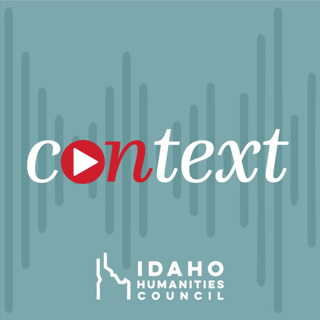
S3E18 Myths & Heroes: Challenging the Narratives of Native American History Part 2
This three-part series presented by Dr. Liz Redd of Idaho State University will help listeners: 1) articulate pervasive myths and stereotypes of native American peoples often perpetuated in mainstream education/society 2) reframe discussions to dispel common misconceptions about Native American peoples, their histories, and their persistence & resistance 3) describe the unique sovereign political status of Native American Tribes in the United States as informed by history and policy 4) explore ways to incorporate diverse voices and perspectives throughout curriculum and programs Key concepts include representation, U.S. Native American Law & Policy, erasure, resistance, and sovereignty. Watch the video here.
9 Sep 202227min

S3E17 Myths & Heroes: Challenging the Narratives of Native American History Part 1
This three-part series presented by Dr. Liz Redd of Idaho State University will help listeners: 1) articulate pervasive myths and stereotypes of native American peoples often perpetuated in mainstream education/society 2) reframe discussions to dispel common misconceptions about Native American peoples, their histories, and their persistence & resistance 3) describe the unique sovereign political status of Native American Tribes in the United States as informed by history and policy 4) explore ways to incorporate diverse voices and perspectives throughout curriculum and programs Key concepts include representation, U.S. Native American Law & Policy, erasure, resistance, and sovereignty. Watch the video here.
8 Sep 202235min

S3E16 80 Years of Reckoning: Minidoka Survivors and Descendants Panel Discussion
This panel discussion focuses on the impacts, stories, and legacies of Minidoka through the lens of survivors and descendants from the camp. The panel includes the following panelists: Paul Tomita, Survivor (Sansei) Mary Abo, Survivor (Nisei) Karen Hirai Olen, Survivor (Sansei) Wendy Tokuda, Descendant (Sansei) Stephen Kitajo, Descendant (Yonsei) Watch the video here.
29 Aug 20221h 4min

S3E15 80 Year of Reckoning: Multigenerational Trauma ofJapanese American Incarceration
Dr. Donna Nagata from the University of Michigan discusses multi-generational trauma and the psychosocial consequences of the World War II incarceration and historical trauma on Japanese Americans with Robyn Achilles. Watch the video here.
17 Aug 202257min

S3E14 80 Years of Reckoning: Minidoka National Historic Site
Listen to Kurt Ikeda, Director of Interpretation and Education, Minidoka national Historic Site briefly discus the impact and the history of the Minidoka Site in Idaho. This is the first episode in a three part series created in partnership with the Friends of Minidoka. Speakers: Kurt Ikeda Director of Interpretation and Education, Minidoka National Historic Site Robyn Achilles Executive Director, Friends of Minidoka Watch the video here.
10 Aug 202221min

S3E13 Beyond Fake News: News Literacy and the Informed Citizen
In the age of information, why is so hard to be a well-informed citizen? Developing our news literacy can help us navigate the media landscape, and that means more than checking facts and spotting hoaxes. Yes, facts are important, but we also need a broader understanding of how news and information are produced and consumed in the digital age. What’s happening to real news, and how is it constructed? Are you in a filter bubble, and how can you break out? Are you the customer or the product in the attention economy, and how can citizens reclaim their power? Drawing on history, psychology, sociology, and politics, this conversation can help you increase your news literacy and teach others to do the same. Learn more by reading "News Literacy and Democracy,” available from Amazon and Routledge. Watch the video here.
26 Juni 20221h 3min

S3E12 Changing Face of Media in Idaho
The Panel will be discussing how both local media and journalism are currently changing & evolving in the 21st century. This panel will be moderated by Bill Manny of Idaho Public Television and the IHC Board of Directors, and introduced by Margaret Johnson, Chair of IHC Board of Directors and Professor of English; Director of Composition at Idaho State University. These panel discussions were made possible with funding from the Mellon Foundation and the Federation of State Humanities Councils. Watch the video here.
15 Juni 20221h 30min

S3E12 La cara cambiante de los medios en Idaho
El Panel discutirá cómo los medios locales como y el periodismo se hancambiado y evolucionando en el siglo XXI. Este panel será moderado por Bill Manny de Idaho Public Television y miembro del IHC, y presentado por Margaret Johnson, Profesora de Inglés y Director de Composición en Idaho State University y miembro del IHC. Estos paneles de discusión fueron posibles gracias a los fondos de la Fundación Mellon y la National Endowment for Humanities. Mira el video aquí.
15 Juni 20221h 29min




















